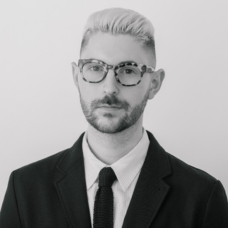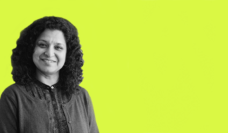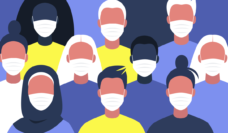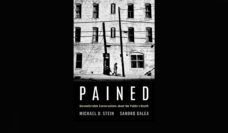Public Health Post: Why did you write BROKE, which is very different from your nine previous books?
Michael Stein: This is not a book of essays, or a novel. It’s a book of voices. Voices of people who don’t have enough money, who are talking about alimony payments and funeral costs and utility bills and cars breaking down to a doctor in a medical office. It’s a book about the people I’ve taken care of as a primary care doctor in my home town for the past thirty years. It’s a booked filled with my admiration for many of my patients, some who have a stoic nonchalance about hardships, some who laugh at the world’s attempts to break them.
Poverty is about hardship?
The classic view of poverty is as a series of hardships—lousy housing, no toys or books, lots of noise outside the window, not enough food. But beyond hardship, I believe poverty is a feeling. Poverty is a kind of pain; it’s inhabited by patients, every minute of every day. In BROKE, I let my patients speak for themselves. But after 30 years of conversations with patients, what they’ve said has formed me, guided me, helped me, and humiliated me, and you’ll hear some of my feelings in what I say back to them in these one-page shards of our conversations.
Why is a doctor talking to his patients about money?
Americans in general don’t like to talk about money. In our social lives, those of us who have plenty of money are more comfortable talking about relationships and addiction and politics and even sex than about what we earn. Our children don’t know our paychecks and don’t ask. But I’ve found this to be a class divide. I’ve found that with the working-class people I know and take care of, they don’t hesitate to disclose specifics about their income, rent, expenditures, and that’s what a lot of them talk about in BROKE. If all you bring home is $724 a month, how does anyone live off that? Maybe upper class folks feel bad about what they have, and they imagine silence makes that bad feeling go away. But when money is tight, people talk about it incessantly—how to make a budget stretch, what they can’t afford, the challenges and impossibility of paying bills. With the doctors whom they’ve seen for a long time, people want to discuss their lives, as much as they want to discuss their diagnoses and medications, and to get some advice about jobs and going back to school and into debt.
So poverty is a medical issue that doctors need to address?
It would be great if primary care doctors asked patients,”Do you ever have trouble making ends meet at the end of the month?” That’s a diagnosis as much as diabetes is a diagnosis. And if the answer is Yes, we need to offer assistance in the office, as we would with any other condition. But mostly, we need to be tolerant, compassionate. If a patient arrives late for a visit, we don’t send that patient away, which is a form of punishment. We try to fit them into a busy afternoon of patients. Many of my patients arrive late (my practice is almost entirely low income patients) and if my belief is that they’re late because they don’t care about the appointment, that’s a profound misunderstanding, The reason this person is late is because they don’t have child care, the bus is not reliable, any number of problems. Clinically, I need to ask myself, what is poverty doing to this person and what contextual factors are distorting their choices and actions?
How is BROKE different from your last book, PAINED: Uncomfortable Conversation about the Public’s Health?
PAINED was about systems and policies. Public health practitioners think structurally, at scale. In my public health research and work, I take up questions with larger purposes. As a doctor, I I think personally. In BROKE, I am a noticer, wedded to the particular. I didn’t write it as a teaching tool for doctors or other people with money. I didn’t write it as a moral instructional manual. I wanted it to be true. And for my patients to be heard.
Photo courtesy of the University of North Carolina Press














